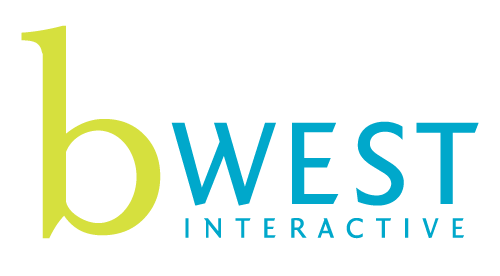To many, small business branding is a necessary evil. You’ve launched your business, you need to start earning, and there’s a big blank on the store sign or landing page where your brand should be. So you dream up a name (first pet, something that rhymes with Pinnacle, an Ayn Rand character, etc.), choose a logo from clip art, and go.
Go right back to square one, that is. Because if your brand doesn’t help you persuade and sell, you need to backtrack, explain and sell each new prospect.
Why is branding important for small business?
Think of proper branding as an unpaid marketing and sales employee.
A powerful brand will tell people who you are, what pain you solve for them, and why you’re really the only choice they should consider. With any luck, it’ll make them feel like pulling out their wallet.
If you’re thinking that’s a tall order for a name and logo, you’re right. A proper brand is more than a name and logo – it should include:
- A name modifier – a short description of what you do best. Think Boeing 747 (name) Jumbo Jet (modifier). A modifier will tell people if the 747 is the right plane for them.
- A key visual – not a logo, but a visual that describes what you do for people without words. Consider the Krazy Glue man, hanging from a girder, having just glued his construction helmet to said girder.
- Your story – you need to build resonance with your consumer. The only way to do that is with a story that relays why you’re exactly like your consumer, how you felt the same pain they’re feeling now, and why your product will alleviate that pain.
- Your customer experience – arguably the most important element of a great brand. Anyone can talk – but can you deliver an experience (from first hello to after-sales service) that screams empathy and overdelivery?
How to create small business branding?
Put away your pencil. Turn off your computer. Go outside, and talk to 10 people who should be buying what you’re selling. Ask them:
- What problem is bugging them, that a product like yours could fix?
- What have they used to fix the problem so far? Why hasn’t it worked?
- If they could design a product to solve their problem, what would its features be?
- What would make that product really cool, and easy to remember?
- What would they call it?
- What would it cost?
- Where would they expect it to be advertised?
- Is there another product out there with a look and feel this product should mimic?
And most important…
- When you’ve built this product for them, would they mind telling their 5,000 closest friends about it.
What most people don’t realize is that this interview research doesn’t slow down the branding process – it accelerates it. Your potential customers will tell you exactly what they expect your brand to be without realizing they’re doing it.
Now go back to your desk. Grab your pencil. Turn on your computer. And start writing down their ideas. Your branding has begun.
OK, let’s go deeper into one thing: your name
In roughly 99% of my small business branding projects, my clients want to get their company name squared away immediately. So let’s pretend we simply don’t have the time to talk to 10 prospects. We need a name… now!
So ask yourself these questions:
- What do I really do?
- How do I want my small business to be perceived?
- By whom?
What do I really do?
Say you’re a plumber. If you don’t want to blend in with all the other plumbers, you need to choose a niche you’d really like to focus on. Yes, you can still do all the other stuff, but if you had your way, the only thing you’d do is luxury condo plumbing. Or aircraft hangar plumbing. Or hotel plumbing.
How do I want my small business to be perceived?
Saying you’re the hotel plumber isn’t enough. What kind of hotel plumber do you want to be? The fastest? The most thorough? The most reliable?
By whom?
If you’re the most reliable hotel plumber, that’s terrific. But who needs to know? The hotel developer? The concierge who gets complaint calls at night? Two very different audiences.
Now put them all together, and start bashing out mediocre names
I really want to be the most reliable plumber for hotels. I want to be on the speed dial of every concierge who has an irate guest with a backed-up sink. Hmmmm, what sort of mediocre, stream of consciousness names come to mind…
- Happy guest plumbing?
- Flo-tel plumbing?
- Concierge plumbing?
- Resort plumbing?
- Happy hotel plumbing?
Utter garbage, right? Let’s get a little lateral in our thinking, then. Google Resort Plumbing. I just did. On page 4, I saw a company named Wentworth Plumbing. Which leads me to Stayworth Hotel Plumbing. Or Stay More Hotel Plumbing. Or Repeat Guest Hotel Plumbing. Or Premium Stay Hotel Plumbing. The list goes on.
Now, before you rush out and pay a lawyer for the name change, ask 10 concierges what they’d call your business. Show them your names. Ask them for more. You’ll find your list of viable names grows quickly.
Small business branding ideas
Be wary of anyone who tells you they have a one-step wonder tool that will develop your small business brand. They’re lying.
Just because there’s no one-and-done solution does not, however, mean getting there can’t be enjoyable and enlightening. It is.
That’s because the most important source of your brand ideas won’t come from you, banging your head against the wall at midnight with a blank sheet of paper taunting you. Quite the opposite. The best small business branding ideas will come to you in chats with your customers, or would-be customers. Asking them what they’re missing, and what their optimal solution would do, look like, and be called.
Consumer insights are the foundation of every great brand, from Apple Computers to Ned’s Apples in the Farmer’s Market.
Enjoy the journey.
Marc Stoiber is a creative director and brand strategy consultant who loves working with entrepreneurs. He’s helped build brands like Mr. Clean, Budweiser and McDonalds, but prefers the frenetic world of startups. Marc has worked at five global ad agencies, has led the creative departments at two of those agencies, run his own startup agency, and today consults full time. He’s always happy to chat with entrepreneurs about their business. You can reach him at marc@marcstoiber.com




